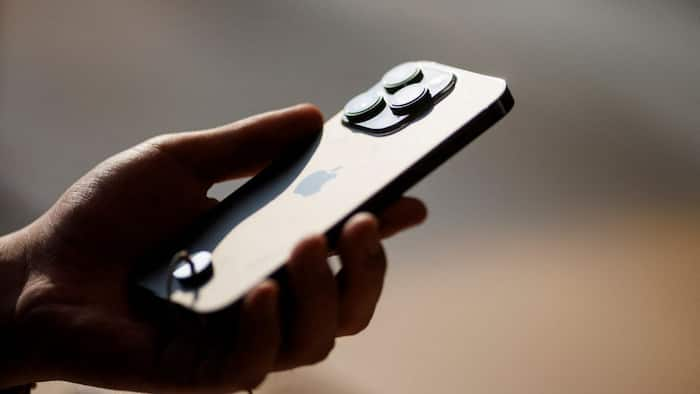
Written By Shubham Verma
Published By: Shubham Verma | Published: Aug 17, 2023, 11:08 AM (IST)


Apple is likely gearing up for the launch of its next iPhone lineup scheduled for September 12. Among the four rumoured iPhone models, the Pro ones are expected to feature radical changes, including USB-C charging ports instead of Apple’s Lightning technology for the first time. Now, a new report has suggested that Apple may also be planning to reintroduce last year’s iPhone 14 this year with USB-C ports instead of their regular Lightning ones. Also Read: iPhone 13 vs iPhone 14 vs iPhone 15: Best Deal To Grab This Diwali Under Rs 50000
According to an Apple developer, who goes by Aaron on X (previously Twitter), the latest tvOS 17 beta 5 code includes two new iPhone models that were not present in earlier beta versions. These two models are also not the same as the ones understood as upcoming iPhone 15 since they are named as iPhone 14,1 and iPhone 14,9. The developer speculated that these could be new models in the iPhone 14 series, but instead of featuring a Lightning port, they all come with USB-C ports. Also Read: Amazon Diwali Sale Brings iPhone 15 Down To Rs 47,999: Here’s The Full Offer Breakdown
tvOS 17.0 Beta 5 references two iPhone models that currently don't exist:
Also Read: Why This Is The Worst Time To Buy An iPhone Ahead Of The iPhone 17 Launch?
iPhone14,1
iPhone14,9— Aaron (@aaronp613) August 9, 2023
A USB-C port is mandatory in all electronics in the European Union, according to the law passed by the European Commission. The new law comes into effect next year, forcing manufacturers to standardise charging and data transfer ports on their devices. Apple, which is the only biggest smartphone maker that does not use USB-C ports on its smartphones, too, has to comply with the law to avoid facing penalties. After the EU ruling, India also mandated USB-C ports on all smart devices sold in the country, giving momentum to the long-running demand from customers for a charging port for which a cable is easy to obtain.
But even though the upcoming iPhone 15 Pro models could replace the Lightning port with USB-C technology, the reason why Apple would do that to its last year iPhone lineup could be the strict mandate in Europe. The law states that no electronics without a USB-C port will be sold in European Union countries, which means the old devices without that port will need to be discarded. For Apple, its one- and two-year-old iPhone models bring reasonable revenue alongside the latest lineup, so if it wants the iPhone 14 series to continue selling, it must adhere to the USB-C standard.
And if Apple is indeed working on new iPhone 14 models, chances are they will be available in India, too, considering the laws around USB-C ports are the same.